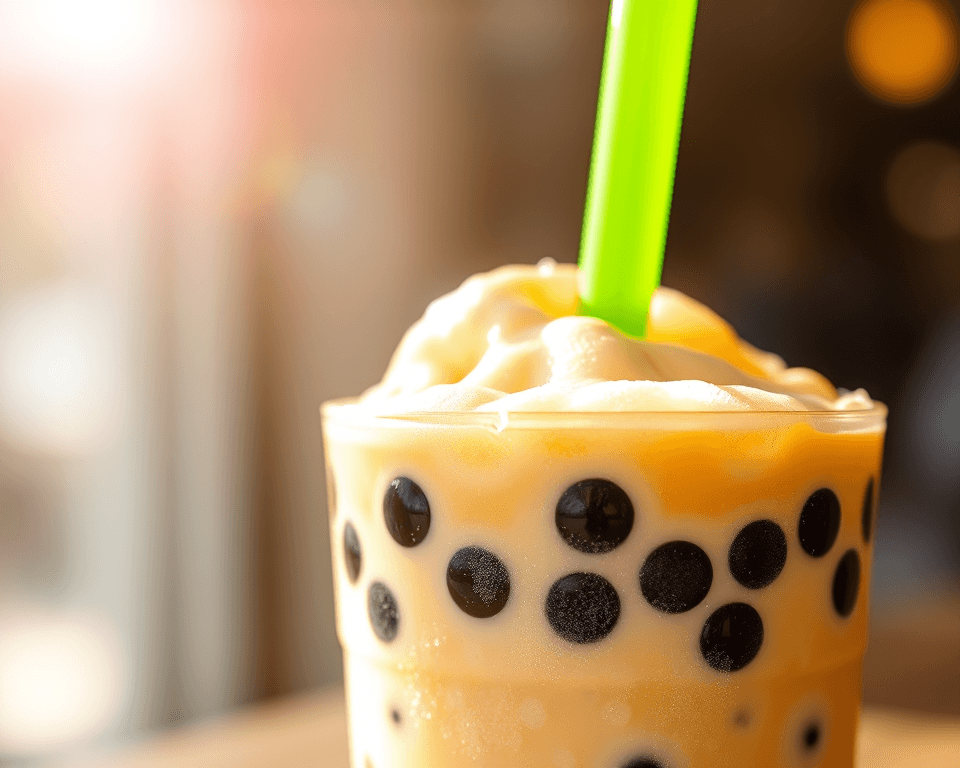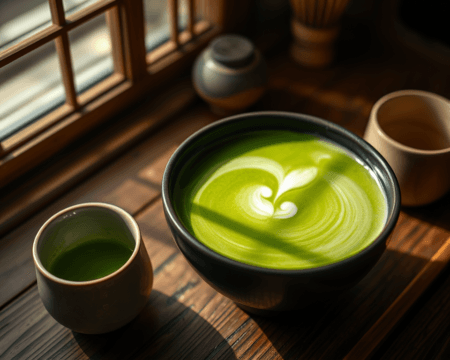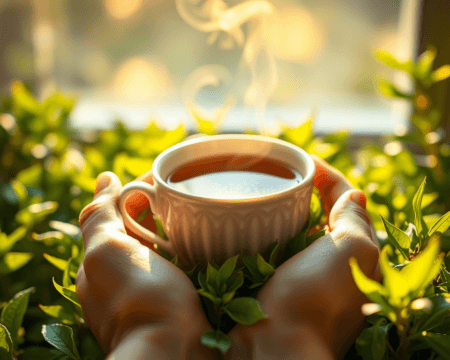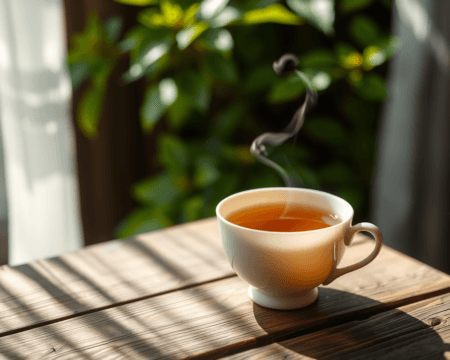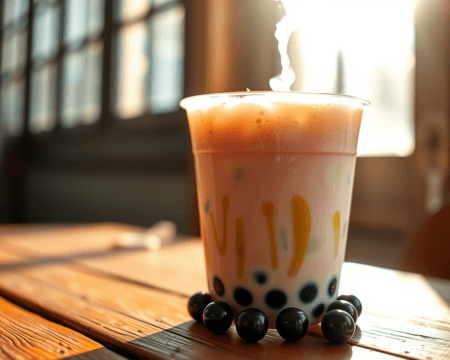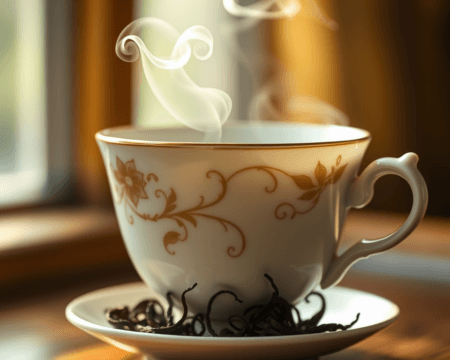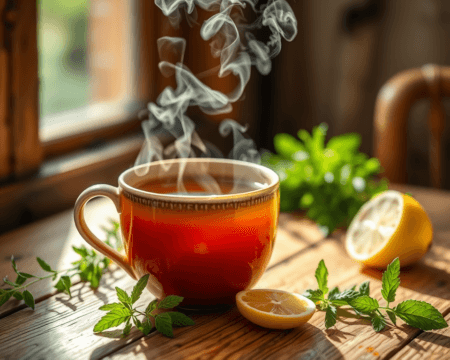If you’ve ever sipped on those chewy tapioca pearls sloshing about in a sweet, creamy drink and wondered, “Can I enjoy this on a vegan diet?”—I’ve got you covered. Boba tea, also known as bubble tea, has exploded in popularity, and with that comes a myriad of ingredients to consider. But not all boba teas are created equal! Some can slip in hidden dairy or non-vegan elements that can leave you scratching your head. Don’t fret! I’m here to break everything down so you can sip happily and mindfully.
Key Takeaways
- Many boba tea ingredients, like tapioca pearls, are vegan-friendly, but watch out for milk and cream.
- Customize your boba with non-dairy milk alternatives like almond or oat milk for a fully vegan experience.
- Be aware of potential cross-contamination in boba shops when choosing your drink.
- Some major boba brands offer certified vegan options—know where to look!
Understanding Boba Tea Ingredients
Getting to the root of boba tea ingredients is essential. What’s actually in that colorful, Instagram-worthy cup? Let’s break it down.
Common Ingredients in Boba Tea
At its core, boba tea is just a blend of tea, milk, sweeteners, flavoring syrups, and, of course, those iconic tapioca pearls. The components can vary greatly, but here are the most common ones:
Tapioca Pearls: These chewy, gelatinous balls are often mistaken for something slimy, but they’re just starch derived from cassava root. Guilt-free and vegan, they’re the star of the boba show.
Milk Tea: Here’s where things can get tricky. Traditional milk tea often uses dairy milk, but you can easily substitute it with non-dairy alternatives to keep it vegan. Options like almond milk, oat milk, or soy milk work wonders.
Flavoring Syrups: Many boba tea shops use fruit syrups, which are often vegan. However, some might sneak in honey or dairy-based flavoring, so it’s best to ask.
Sweeteners: Most sweeteners (like sugar) are vegan. But, again, watch out for unique blends that might contain honey or gelatin.
Toppings: Beyond tapioca, you might find jellies or puddings that could contain non-vegan ingredients like dairy or gelatin. Always check!
Vegan Status of Each Ingredient
Just because something’s delicious doesn’t mean it’s vegan. Let’s analyze the potential suspects lurking in your boba tea cup.
Tapioca Pearls: Usually vegan. Check for anything added, but they’re generally safe to go.
Milk Choices: Dairy milk—nope, not vegan. Non-dairy options like coconut or cashew milk are fair game.
Syrups: Stay clear of those that say “honey” or are labeled as creamy. Stick to fruit or pure cane sugar syrups for a guaranteed vegan pick.
Additives: Some colorings and flavorings may contain non-vegan elements. Being a savvy consumer pays off.
Toppings: Always ask. Some boba shops get creative with their toppings, and you might stumble upon a non-vegan treat.
Customizing Boba Tea for Vegan Diets
You can totally take control of your boba experience! Here’s how:
Tips for Making Vegan Boba Tea
If you’re like me, crafting your boba at home means you can keep it exactly how you want. Start with the basics. Grab yourself some tapioca pearls and your preferred non-dairy milk. From there, it’s all about customization!
Want a sweeter sip? Pick your favorite flavored syrup (just double-check it’s vegan). And when it comes to toppings, think outside the box—coconut cream or almond flakes can really amp it up without sacrificing your lifestyle choices.
Popular Vegan Toppings and Their Alternatives
Instead of traditional dairy-heavy toppings, consider these options:
- Coconut Cream: Perfect for adding creaminess without that dairy hangover.
- Almond Milk: A classic choice that pairs fabulously with any flavor profile.
- Matcha: A great way to jazz things up while keeping it plant-based.
These toppings not only enhance flavors but also bring a whole new sensory experience to your bubble tea game.
Observing Regional Variations in Boba Tea
Boba isn’t just a drink—it’s a cultural phenomenon! And, oh boy, does it vary from place to place.
Different Types of Boba Tea Across Regions
From the bustling streets of Taiwan to tearooms in the U.S., boba tea evolves everywhere. You’ve got your classic milk teas, the fruit-forward blends, and then there’s the cutting-edge flavors. Regions might incorporate local fare too, using unique ingredients that make for delightful surprises.
Ingredient Variations Based on Location
For example, in Southeast Asia, you might find boba tea with fresh fruits blended right in, while in the U.S., dozens of shops are crafting their concoctions with exotic flavors you won’t find anywhere else. Keep an eye out for local specialties that could be either a delightful riff on traditional boba or something completely new.
From green tea bases to vibrant fruit jellies, the flavor profiles change significantly—and that means you’ll never run out of exciting options!
Assessing Popular Boba Tea Brands
Let’s get real here. Brand loyalty in the boba world matters just as much as the drinks themselves.
Vegan Options in Major Boba Brands
If you’re on the hunt for vegan options, you’ll want to keep your eyes peeled for brands like Tapioca Express, which clearly indicates their vegan-friendly items on their menu. Kung Fu Tea also offers a variety of plant-based alternatives, including non-dairy creamer and exclusive fruit flavors that sit well with your conscience.
Want a ready-made boba kit? Try Boba Fett for those at-home boba dreams. They have vegan options filled with tapioca pearls and all the essentials to get started. Generally, products under $30 can have you crafting delightful drinks without breaking the bank.
Homemade Vegan Boba Tea Recipes
Ready to channel your inner barista? Here’s a super easy recipe:
Ingredients:
– 1 cup tapioca pearls
– 2 cups of your favorite non-dairy milk
– Sweetener of choice (like agave syrup)
– Flavoring syrups (fruit or tea)!
Instructions:
1. Prepare your tapioca pearls according to package instructions.
2. Mix them with your non-dairy milk and sweetener in a glass.
3. Top it with flavoring syrup—stir and enjoy!
You’ll save money, and the satisfaction of crafting your unique concoction can’t be matched.
Avoiding Cross-Contamination
When rolling through a boba shop, you need to ensure your drink remains vegan.
Understanding Cross-Contamination in Boba Shops
Cross-contamination happens when your drink touches something non-vegan. Think shared equipment or unwashed containers. Ask the barista how they handle equipment and whether they have dedicated cups for vegan options. Serious question to consider if you want to maintain your lifestyle!
How to Find Vegan Boba Tea in Your Area
Searching for vegan boba in your town? Check out local directories online or ask friends for recommendations. If nothing’s popping up, don’t hesitate to hit social media! A quick “vegan boba near me” can open doors to hidden gems.
Even better, many places are now touting vegan options, so keep an eye out for those listings. You may just discover a local spot you never knew existed!
Frequently Asked Questions
Are all boba tea flavors vegan?
Not all boba tea flavors are vegan. Many contain dairy, such as milk-based teas and creamers. It’s essential to check the ingredients or ask the shop staff about specific flavors to confirm if they’re vegan-friendly.
Can I request vegan options at boba shops?
Yes, most boba shops will accommodate vegan requests. You can ask for non-dairy milk alternatives, and they may also have specifically vegan flavor options or toppings available. Don’t hesitate to inquire!
What toppings are typically vegan in boba tea?
Common vegan toppings include tapioca pearls, coconut jelly, and fruit bits. However, always verify the ingredient list since some jellies or toppings might contain non-vegan products.
How can I ensure my boba tea is free from cross-contamination?
To avoid cross-contamination, inform the staff that you are ordering a vegan drink. They can take steps to prevent mixing with milk products, ensuring a safe and vegan-friendly experience.
Are there specific boba brands that are guaranteed vegan?
Yes, several major boba brands offer certified vegan options. Look for brands that specifically state their drinks or ingredients are vegan, and check for certifications if available.
What non-dairy milk alternatives can I use in my boba tea?
Common non-dairy milk options include almond milk, oat milk, soy milk, and coconut milk. Each offers a unique flavor profile, so you may want to experiment to find your favorite combination.
Is it safe to drink boba tea if I have a lactose intolerance?
Yes, if you choose non-dairy milk options and confirm that no dairy is involved in other ingredients, boba tea can be a lactose-free alternative suitable for those with lactose intolerance.
How do I find vegan boba tea shops in my area?
You can search for vegan-friendly boba shops using apps like HappyCow or Yelp, or check social media for recommendations. Additionally, some websites and food blogs may list boba shops that offer vegan options in specific regions.
Are there any health considerations when consuming boba tea?
While boba tea can be enjoyed as a treat, it often contains high sugar levels. It’s wise to limit consumption and opt for less sweet versions if you’re monitoring your sugar intake. Always consider the caloric content of your chosen toppings and sweeteners.




